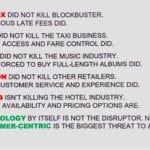7 Mistakes Rural Marketing Managers Make (And How To Fix It)
Over the years I’ve worked with some great rural marketing managers and I’ve also met some poor ones. It’s the same for most of us, a mix of good and bad. So what distinguishes the best rural marketing managers from the worst? The worst commit the crimes below. However they can improve their careers and remuneration prospects if they follow the recommendations below.
Do you want to learn the strategies for rural marketing and be a more effective and valuable rural marketing manager who craves more reward and recognition for what you do?
Do you want to secure that raise and promotion this year? Yes?
Great, because I’ve written this blog just for you.
MISTAKE #1: MISTAKING OUTPUTS AS OUTCOMES
A marketing plan is an output. A confirmed sale or order is an outcome.
You need to know the difference.
This is why sales teams so often struggle to respect their marketing counterparts. The sales guys perceive marketing as a cost centre whilst they see themselves as the profit centre. “One spends money, the other spends it” they say. The only way to satisfy and silence a critical sales team is to treat them like your best customer and shower them with qualified leads. In fact, drown them with them! That will keep them quiet and force them into gear. If they are unable to close then perhaps that’s their issue. Or maybe your marketing is so good the customers close themselves and you don’t need a sales team at all? There is another option and that is to centralise both marketing and sales, the merits of which I’ve written about in a previous post.
MISTAKE #2: NOT KNOWING THEIR CUSTOMERS WELL ENOUGH
The best rural marketing managers take every opportunity to discover more about their retail customers and end farming customers. They want to continually understand what they do, the lives they live and the pressures and problems they face. It’s easy to spot the ones that are regular contact with rural customers. When we run farmer panels they are the ones at ease and relaxed being around customers. The ones that aren’t are nervous and flighty because it’s a new experience where they don’t know what to do or say, because they’ve never been in the room with a live customer before.
Don’t guess or assume. Be the professional you are and make it your job to know your customer better than anyone else. Go and spend the day with them. Work out what makes them tick by observing them as they go about their tasks. What do they need that isn’t being met? What’s frustrating them most about dealing with your company? Ask them what advice they have for you.
It will be time well spent.
MISTAKE #3: THEY ARE INFATUATED WITH FACEBOOK
Content marketing doesn’t default to Facebook. It’s not the silver bullet to your content strategy and it’s getting harder because everyone is there competing for audience bidding against each other which only pushes the algorithmic price up for paid ads or boosted posts (which is your only option if you want cut through as organic posts only reach about 7% of your followers).
Facebook is only one of many content channels you can use. Think wider. Think about farm focus days, field days, discussion groups, blogs, seminars, conferences, retailer evenings, website news, email newsletters, podcasts, a YouTube channel, webinars, white papers or e-books. Every channel needs content. Your partner and re-seller channels need content too. There’s an idea! When you do create your content, make sure it’s worthy. By that I mean newsworthy, just like all good newsletters are. They get read far more that way.
MISTAKE #4: THEY STILL USE GOOGLE ADWORDS
When you resort to using Google Adwords you’re signalling to everyone else (including your competition) the quality of your organic content is poor. People trust natural and hate fakes. When you buy your way to the top, which is what you’re doing with Google AdWords you are saying you will buy your way through rather than earn your way up and people always prefer the real deal. Companies who show the hard graft.
My advice is if you can’t beat them, don’t buy them. Double down on producing regular, quality content on a consistent and compelling basis that rewards your customers for the time they spend reading it.
MISTAKE #5: THEY HAVE A CLOSED MINDSET
You need to have a growth mindset, not a closed one. You don’t know everything and nor does any of us. Einstein never did and admitted as much, so we mere mortals should be the same.
The most intelligent people I know are the first ones to say “I don’t know.”
They are curious instead. The best rural marketing managers are those that are hungry and committed to life-long learning and continual improvement. They are secure enough in themselves and their own professional self-worth that instead of protecting their position due to their fear of being exposed about what they don’t know or should know, they welcome and encourage new ideas and insights from all areas both internal and external.
They want to be coached, they listen and they learn. Be a growth mindset marketer, not a closed one. Don’t be one of those “gatekeepers”.
MISTAKE #6: THE TREAT CONTENT AS COMPLIANCE
Facebook and Linked are littered with meaningless, crap content. Self-serving dross that people serve up hoping someone will engage with. Sometimes they even have to pay for sponsored content. Epic fail. Most of the time the interaction is so low they might as well be talking to themselves.
Their reward? Being ignored or unfollowed.
They forget the fact that they need to build a relationship first before asking for a sale. No one gets married on the first date. “Here, buy my stuff.” “Why?” Build a relationship by giving them something they want and need. Serve instead of sell.
And remember, content is king and consistency is key.
MISTAKE #7: NOT UNDERSTANDING COMMERCIAL REALITIES
This is why so few marketing managers ever make it to the Board Table (Christopher Luxton of Air NZ is a rare example). Most marketing managers can’t read a balance sheet let alone understand net profit or ROA. These metrics are the commercial language of C Suite. Get with it. Understand the concept of cost benefit analysis and NVP.
Remember, if you’re not round the table you’re on the menu.
(BONUS) MISTAKE #8: THEY CHOOSE PROVIDERS BASED ON FRIENDSHIPS, NOT STRATEGIC FIT
I’ve seen this go very wrong too many times to tell in my career.
“I have a mate who works for an agency who can help us…”
Those immortal words are the wheels that start to fall off because there was misplaced trust from the outset. The briefing process wasn’t rigorous or robust because the right questions weren’t asked upfront because neither party knows the fundamental questions they need to ask. Their hot shot creative team doesn’t know their DM from dry cows, their MS from ME or their actives from their adjuvants. Worse, the provider they were guilted into using is guessing on the job or a generalist pretending to know the nuances of rural. They always get exposed in the end. And it can expose you as well. It’s a biased emotive decision, at best.
Do your homework and save your friendship. Make sure your provider can do the job and has the track record, talent and testimonials to back it up. Any good provider’s job is to make you look good, not bad, by getting the right results for you.
+++
I hope these are useful. What have we missed? I would be very grateful to hear from business owners on how they define and reward great rural marketing managers. What do they do that separates them from others? What defines the difference between good from great? What traits, skills and attributes do they look for most?





